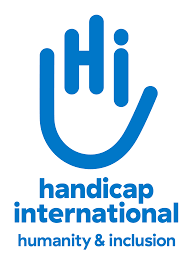Under the supervision of the Project Manager or Inclusion Specialist, the Inclusion Technical Officer contributes to the implementation of the organization’s mandate and strategy by ensuring that humanitarian and governmentactors are equipped to integrate inclusion in line with the IASC Guidelines and global humanitarian standards. He/she provides technical expertise, designs and delivers training, and ensures that inclusion principles (age, gender, disability, and diversity) are effectively mainstreamed in humanitarian response and government programming. The officer works closely with the program’s technical team and external stakeholders to ensure quality, accountability, and sustainability of inclusion practices.
General mission
Mission 1: Technical Guidance and Support to Projects
-
Ensure project activities are aligned with global inclusion standards and adapted to local contexts.
-
Conduct mapping of the Organizations of persons with disabilities in the project area
-
Support partners in integrating inclusion within project design, implementation, monitoring, and reporting.
-
Review training materials, strategies, and tools to ensure alignment with international humanitarian standards.
-
Support in the identification of the barriers related to disability inclusion in collaboration with AAP and ADDTF
Mission 2: Capacity Building and Training
-
Provide training on disability inclusion (with a strong focus on IASC Guidelines) to humanitarian actors and government staff.
-
Lead the design and facilitation of capacity-building initiatives for humanitarian actors, civil society, and government staff.
-
Deliver training sessions, workshops, and mentoring on IASC Guidelines, disability-inclusive humanitarian action, and age/gender/diversity inclusion.
-
Develop practical tools, case studies, and modules for field-level applications.
-
Evaluate training outcomes and recommend improvements.
Mission 3: Knowledge Management and Learning
-
Document lessons learned and best practices in inclusive humanitarian action.
-
Contribute to technical learning and research on inclusion.
-
Conduct accessibility audits of facilities and provide recommendations for improvements.
-
Support MEAL teams in collecting and analyzing inclusion-related data.
Mission 4: Advocacy and Representation
-
Represent the organization in technical working groups, government coordination forums, and inclusion networks.
-
Advocate for the integration of IASC Guidelines within government policies and humanitarian frameworks.
-
Contribute to the development of proposals and concept notes, ensuring inclusion is mainstreamed.
-
Support visibility of inclusion work through technical briefings, reports, and advocacy materials.
Mission 5: Emergency Preparedness and Response
-
Contribute to preparedness and response activities, ensuring inclusive approaches are adopted in emergencies.
-
Provide rapid technical support during humanitarian crises to promote disability, age, and gender-sensitive programming.
Skills
Professional Technical Skills
-
Strong knowledge of IASC Guidelines on Inclusion of Persons with Disabilities in Humanitarian Action.
-
Expertise in capacity-building methodologies for adult learning and humanitarian training.
-
Familiarity with Core Humanitarian Standards (CHS), Sphere Standards, and protection frameworks.
-
Practical experience conducting accessibility audits and inclusive assessments.
Shared Skills
-
Strategic analysis and project management.
-
Public relations, representation, and communication with humanitarian/government actors.
-
Monitoring, evaluation, accountability, and learning (MEAL) with an inclusion lens.
-
Emergency preparedness and response.
Cross-cutting Skills
-
Strong facilitation and presentation skills.
-
Ability to work under pressure and manage multiple priorities.
-
Collaborative, solution-oriented approach.
-
Sensitivity to diversity, equity, and safeguarding principles.
|
Knows |
Practices |
Proficient |
Expert |
||||||||||||
|
Professional capacity building |
√ |
||||||||||||||
|
HI Accessibility Standards |
√ |
||||||||||||||
|
Disability in Humanitarian Action |
√ |
||||||||||||||
|
IASC guidelines on people with disabilities |
√ |
||||||||||||||
|
Knows |
Practices |
Proficient |
Expert |
||||||||||||
|
Intervention strategy - Field project management |
√ |
||||||||||||||
|
Public relations / representation / internal-external communication - Global program management |
√ |
||||||||||||||
|
Capitalization and continuous learning - MEAL |
√ |
||||||||||||||
|
Project evaluation - MEAL |
√ |
||||||||||||||
|
Strategic analysis - Institutional Fundings |
√ |
||||||||||||||
|
Safe Programming / Risk mitigation (including safeguarding)– Protection |
√ |
||||||||||||||
|
Norms, legal frameworks, references related to disability - Inclusion |
√ |
||||||||||||||
|
Operational partnerships - Field project management |
√ |
||||||||||||||
|
Knows |
Practices |
Proficient |
Expert |
||||||||||||
|
Emergency response |
√ |
||||||||||||||
|
Emergency monitoring and preparedness |
√ |
||||||||||||||
|
Knows |
Practices |
Proficient |
Expert |
||||||||||||
|
Frameworks and references |
√ |
||||||||||||||
|
Office and collaborative tools |
√ |
||||||||||||||
|
Stress management |
√ |
||||||||||||||
|
Working interdependently in a global organisation |
√ |
||||||||||||||
Requirements
- Resume attachment is required.
Expression ....
BS Hons Computer Science/BE Computer Science/Masters Computer Science or equivalent degree in Com....
Bachelor Degree in Computer Science /IT/ Engineering OR Bachelor Degree with Diploma in Computer ....
....
